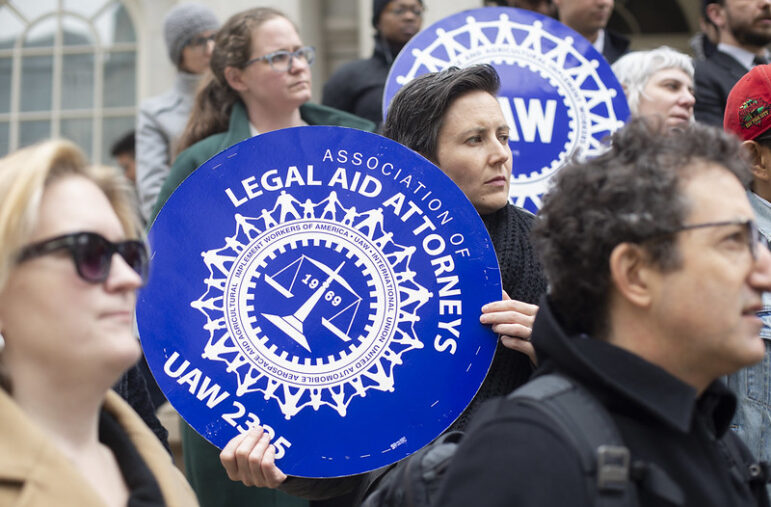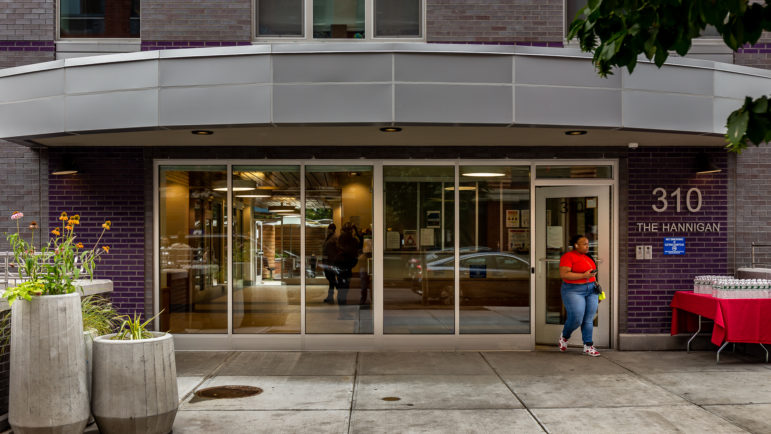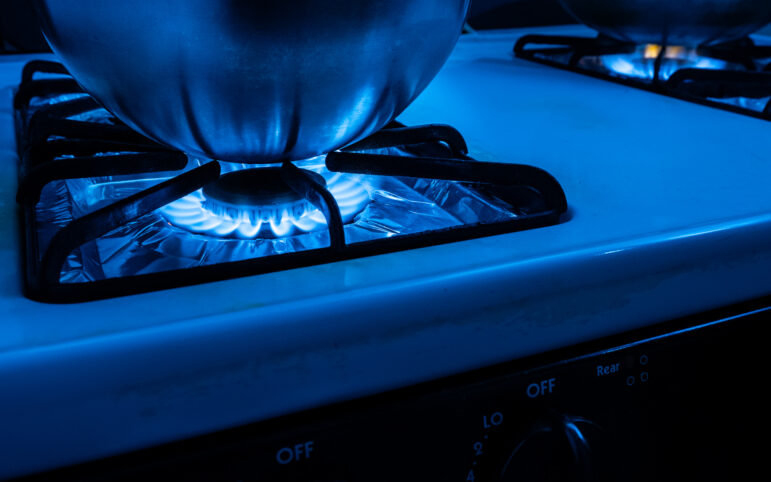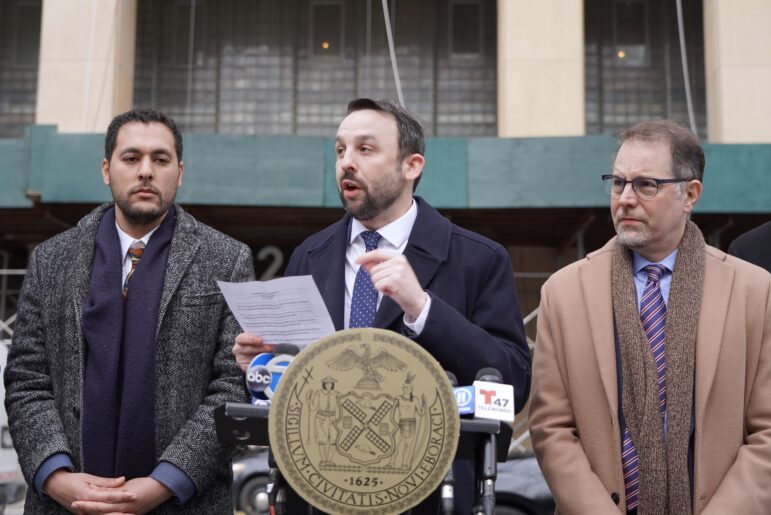Rights in Your Pocket
The top lines of the wallet card read simply: “Notice to NYPD: I want to have my parent/guardian notified immediately if I am arrested. I want to speak to my attorney now!”
The New York Chapter of the National Lawyers Guild, a 60-year-old organization of civil rights advocates, passes the cards out to kids during street law workshops and after-school programs to remind them that they too have rights when stopped by cops.
The Police-Barrios Relations Project in Philadelphia also found a solution in the cards. However, theirs read more like a warning sign by the lions’ den at the zoo: “Don’t tell the officer that you have rights–this may upset him.”
The Crown Heights Youth Collective does role-playing exercises to recreate routine confrontations between police and kids to teach teens how to answer the cops’ questions. “We’ve had a reduction in the number of incidents that could have escalated unnecessarily,” says the collective’s chief, Richard Green. National Lawyers Guild, 212-255-4181; Police-Barrios Relations Project, 215-423-4812; Crown Heights Youth Collective, 718-756-7600.
Tell the Brass Where It’s At
“No Justice, No Peace” looks good on bumper stickers, but if you want to make cops listen, you have to talk their language. Marvin Calloway of the South Bronx Churches helped tenants in Morris Heights monitor drug activity and shoot-outs in their area, compile statistics and write a proposal seeking more patrols, which they presented to Bronx Borough Chief John Scanlon.
Tenants noticed that the 46th precinct had increased patrols by the afternoon of the same day. “We didn’t go [to the police] with our hats in our hands,” Calloway says.
After two bullets crashed through the bedroom window in Elizabeth Serrano’s children’s room, she demanded that the cops “clean out” drug dealers from her building on 175th Street in the Bronx. To make sure they were complying, she asked officers to ring her bell every time they arrived on a call. “I know if they haven’t been in my building this month. I can ask them: ‘Why haven’t I seen you?'” she says. South Bronx Churches, 718-402-3676.
Get God Involved
Father John Jenik of the Our Lady of Refuge Church in the Fordham section of the Bronx is waging a war on open-air drug dealing. He can rattle off the hot spots on neighborhood streets, but explains that the police are doing nothing about them.
So, taking a page out of the civil rights movement, Jenik leads monthly vigils to these locations, where they hand out flyers to passers-by to publicly identify the areas as crime zones. Jenik and the other protesters once stopped traffic on Bainbridge Avenue. “We were praying and singing in the street,” he says. “The police came then.” He also prints names of businesses in the church bulletin that he believes are fronts for drug dealing so his congregation can boycott them. Our Lady of Refuge Church, 718-367-4690.
Make Cops Camera Shy
After hearing reports that police were harassing homeless people in a gentrified neighborhood in Berkeley, Calif., COPWATCH volunteers with police scanners and video cameras responded. The seven-year-old organization patrols the streets in pairs, videotaping police and citizen interactions.
Reminiscent of the classic Black Panther tactic of tailing patrol cars, an unrelated COPWATCH program in Minneapolis takes the extraordinary step of physically intervening in suspected brutality cases. Not surprisingly, twelve members of the group have been arrested over the last three years. “We have a lawyer who represents us for free,” Minnesotan Katrina Knutson explains. COPWATCH Berkeley, 510-548-0425; COPWATCH Minneapolis, 612-649-4586.
Take Them to Court
Thanks to an initiative by the New York Chapter of the National Lawyers Guild, victims of even minor police abuse will have their day in court–small claims court, that is.
Mehira Gilden, vice president of the guild’s Lawyers Against Police Abuse Program, says small claims litigation is a fast, cheap option for litigating cases of police misconduct such as sexual harassment and wrongful arrest, giving victims a way to hold police accountable.
“You don’t need [physical] injuries to have your rights violated,” she says. The Los Angeles chapter of the guild ran a similar program and pushed more than 500 cases through small claims–only to have most victories overturned in state Supreme Court.
But Matthew Schneider, the New York program’s co-director, says officially documenting the abuse, not winning money awards, is the main objective. He says their first small claims case here, brought by a homeless man who says he was wrongfully arrested, is pending.
In an October convention, the National Lawyers Guild also adopted a plan to create a national clearinghouse to help lawyers of police abuse victims expand and strengthen their caseloads. It also keeps tabs on current legal standards concerning brutality and lists of expert witnesses. National Lawyers Guild, New York Chapter, 212-255-4181.








